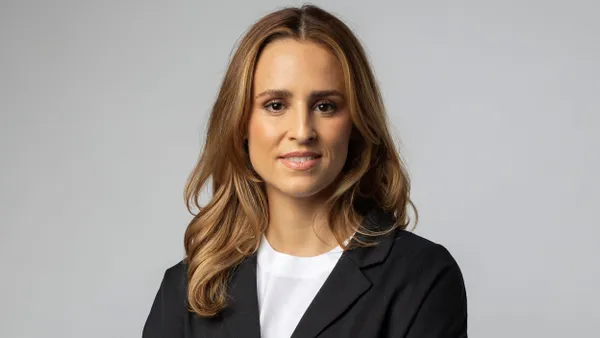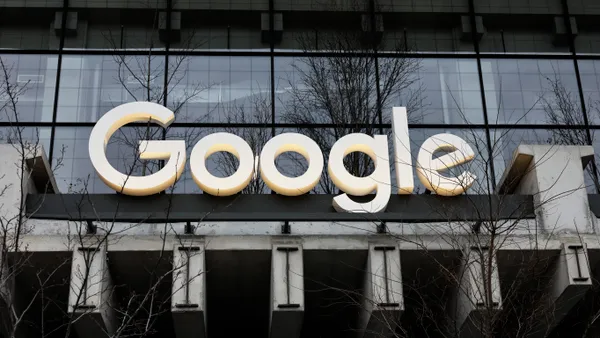Digital. Digitize.
Digitization. Digitalization.
Digital transformation. Modernization.
If the buzzwords offer any indication, businesses have two choices: evolve or become obsolete.
Savvy business leaders won't like the latter option. In a technology-hungry world, market forces are pressuring companies to move away from their roots.
The need for change is spurring the rise of digital roles in the enterprise, introducing "digital" into titles of executives in the C-suite. For some companies, this means increasing responsibilities to match new titles. For others, that means bringing on a chief digital officer.
In the role for over a year, Joe Atkinson, chief digital officer of PricewaterhouseCoopers U.S., took a position that required six months to plan.
It is easy to establish a title, but the audit and assurance, consulting and tax services firm wanted to understand what a CDO would offer.
PwC had to define transformation, communicate why they wanted to do it, understand the hoped for outcomes and hold the company accountable if those outcomes are not met, Atkinson said in an interview with CIO Dive.
To make a digital overhaul work at PwC, Atkinson and the other business stakeholders have to track, monitor and manage business outcomes against those digital expectations. Without that, PwC can't drive lasting change.
Bringing in a CDO "is about digitizing PwC," Atkinson said. During its 160-year history, the company has had to frequently reinvent. But a digital transformation is about "how do we best connect technology with our people so that our people are positioned to fully exploit the technology transformation that's taking off."
Where CDOs fit
At PwC, Atkinson serves as part of C-suite leadership, is a peer with the U.S. Global CIO and reports directly to the CEO. But operationally, he spends most of his time with the COO and works closely with HR leadership.
"I sometimes describe myself as professional connector/agitator for our agenda among our leadership team," Atkinson said. "I view it as my job to look for and seek out the gaps in our execution across the various functional responsibilities we have."
Across the industry, there is little consensus about what the CDO role means or should entail. Because the word "digital" is in the title, it is easy to assume it is a technical role. But it’s less about the tools that a company implements and more about how it implements them.
A CDO should make an organization more lean, agile and quick to respond to market changes, said John Parkinson, affiliate partner at Waterstone Management Group, in an interview with CIO Dive.
CDOs are also tasked with digitization, but the term is vague and has different definitions across sectors.
Essentially, companies are asking three questions around injecting digital technologies, Parkinson said.
-
How do we play catch up for the last 25 years of underinvestment in digital technologies across the business?
-
How do we continue running the business while injecting digital, protecting margins and productivity along the way?
-
What does the future look like and what opportunities open up when I address questions one and two?
A CDO is a role marked by evolution. Once a company has converted from analog to hybrid analog to digital, firms should be able to do things they couldn't have done before, Parkinson said.
Once a company is in a digital realm, it won't need transformation capabilities anymore. Instead, it needs continued investment and awareness of disruptive trends.
"I have said from time to time that I'm the first chief digital officer of PwC," Atkinson said. "I may also be the last because if I accomplish what's on my agenda, then we won't have a set of projects to digitize the firm. It will simply be the way we do business."
Not all CDOs are created equal
PwC helps other companies evolve; anything it learns from internal transformations it can turnaround on customers, acting as a sandbox for modernization insights.
"Anything anyone learns is available to everyone," Parkinson said.
PwC's ability to productize learned transformation insights is the exception to the rule.
Companies seeking a digital future are reacting to competitors and customers demanding more direct-to-consumer options.
As of June 2017, 19% of the world’s largest 2,500 public companies had CDOs, according to PwC research. But a CDO's responsibilities can vary across sectors, depending on business demands.
Companies experiencing market downturns are turning to CDOs and other technology leaders to revamp lagging brands. Last year Lowe's was in a quandary and brought on its first CDO.
Vikram Singh's role is to launch a digital evolution for Lowe's and weave it into the company's long-term strategy.
Avon too, incorporated "digital" into its new CIO's role in August. The hybrid chief digital and information technology officer, Benedetto Conversano, is tasked with standardizing IT and aligning digital technologies with corporate strategies.
CDOs are a transformational role and, whether in struggling retail firms or industry-standard telecom companies, businesses are looking toward digital technology to create a operating model.












